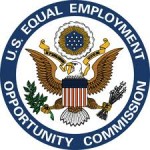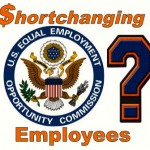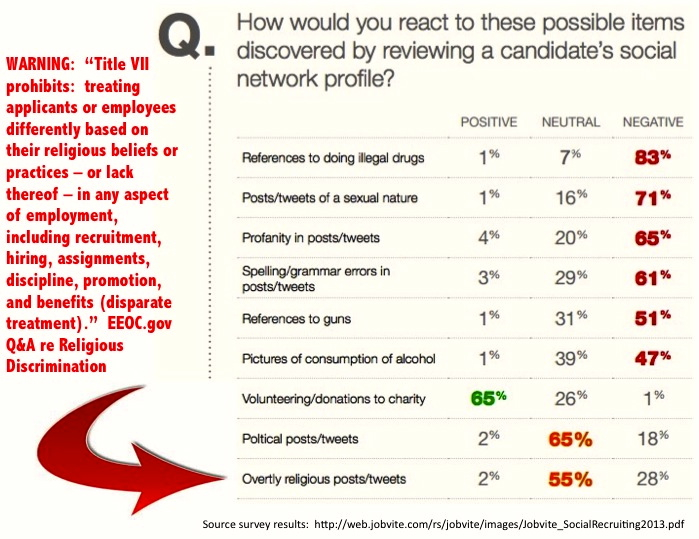 This blog is the third in a series about workplace mediation. In the series, I will be interviewing various plaintiff’s counsel, defense counsel and in-house counsel counsel and sharing their insights for successfully mediating a workplace dispute. In sharing these perspectives, my goal is to generate a rich discussion that helps us all better serve our clients by improving our mediation skills.
This blog is the third in a series about workplace mediation. In the series, I will be interviewing various plaintiff’s counsel, defense counsel and in-house counsel counsel and sharing their insights for successfully mediating a workplace dispute. In sharing these perspectives, my goal is to generate a rich discussion that helps us all better serve our clients by improving our mediation skills.
If you missed the first in the series check it out here. In Blog 2, I interviewed plaintiff’s counsel Donna Ballman. Today, I’m interviewing Fox Rothschild partner Richard Cohen.
Richard brings a great perspective to this discussion. His first job out of law school was as litigation counsel for the New York City Law Department. He then became Vice President and Assistant Counsel for the Manufacturers Hanover Trust Company for 8 years before moving into private practice, where he has litigated, arbitrated and mediated for the last 25 years. He is now a litigation and employment partner in the New York office Fox Rothschild and is a regular contributor to the Employment Discrimination Report, an employment law blog. To learn more about Richard click here.
Q. How has your approach to mediation changed over the course of your 35 year career?
A. Two major things have taken place in that time: the number of trials has plummeted across the country, and “alternate dispute resolution” has taken off. There are many reasons for this, skyrocketing legal fees perhaps being the most significant.
Mediation was relatively untried in the early days of my career and there were few trained mediators, or lawyers who knew what to do when the process was not overtly adversarial. The lawyers acted as if they were in court arguing to convince the mediator of the merits of their case, with little understanding of the collaborative nature of the process. Not much was achieved by way of actual resolution, and lawyers, always leery of change, stayed away.
Now, mediation is a known quantity, well-established, and, in fact, very frequently court-ordered! And in my experience, it has become more successful in resolving disputes.
Q. Do you approach the preparation for mediation as outside defense counsel differently than you might have if you did not have the added benefit of having worked as an in-house counsel?
A. As an in-house lawyer I was not on the front lines and I was able to play the “difficult client” role when the outside defense counsel was mediating, whether I was in the mediation room or not. I learned the role of the in-house counsel within the company, her limit of authority for settlement, who she had to report to and the politics and economics of the company – all of which I am more sensitive to now when I mediate (or litigate).
Q. When plaintiff’s counsel doesn’t permit his/her client to talk in the opening session of a mediation how does that impact your evaluation of the claim?
A. I immediately get the impression if I have not deposed the client that she would probably make a bad witness since she is being prevented from speaking, which hardens my position. Similarly, I get the sense that plaintiff’s counsel is unsure about the case or her client’s ability to communicate the facts. And if I have already deposed the client, my guess is that the other counsel does not want to expose her to being “impeached” if she changes her story.
Q. Can you share with us your top pet peeves about mediation, plaintiff’s counsel and mediators?
A. Lack of preparation is always on top of the list. If I am prepared and my client is prepared and the mediator is prepared, all of our time is being wasted by an ill-prepared counsel, and the likelihood of a successful mediation – which should be the goal of all participants – is decreased. Also, an intransigent or unreasonable counsel or client makes me feel that the other side is not interested in a resolution – at least not at this stage. Finally, a mediator who is clearly not interested in spending the time to resolve the dispute – which, when it happens, is usually when the mediator is a volunteer, and/or is court-appointed and uncompensated. Mediation is hard work for all and you cannot hope to achieve success without time and effort.
Q. How about the other side of the coin? What do plaintiff’s counsel who you view as most effective at mediation do differently as compared to their colleagues.
A. They realize that it is in the best interest of their client to drop their combative posture (not easy for a litigator!), be cooperative and look for ways to avoid an impasse and achieve a realistic settlement – even if it is not ideal. The goal is to get to an agreement, not to “win” or convince the mediator.
Q. What do effective mediators do differently in your view?
A. They are empathetic to the positions and sensitivities of both sides, realize that both sides feel aggrieved, and yet they can be candid, forthcoming and strong enough to confront both sides with the weaknesses in their positions. They are also tireless (God bless them!), and do not take a simple “no” for an answer, but seek ways to get to “yes.” They realize that a successful mediation is a win-win situation, even if neither side realizes it at the time and does not leave the room feeling overjoyed.
______________________________________________
 Workplace Investigations Group is headquartered in Atlanta, GA and has a national directory of professional workplace investigators who are all attorneys and have a minimum of ten years of employment law experience. As such, wherever the workplace issue arises, corporate counsel and employers can easily identify an investigator who can respond to the regional need quickly, impartially and competently. For more information: www.Internal-Investigations.com
Workplace Investigations Group is headquartered in Atlanta, GA and has a national directory of professional workplace investigators who are all attorneys and have a minimum of ten years of employment law experience. As such, wherever the workplace issue arises, corporate counsel and employers can easily identify an investigator who can respond to the regional need quickly, impartially and competently. For more information: www.Internal-Investigations.com











